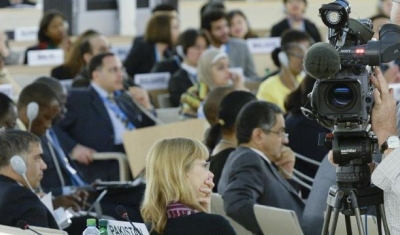Use of Force for Law Enforcement Purpose: Focus on Less-Lethal Weapons


Tony Webster
1 June 2017
Less-lethal weapons (LLW) and equipment have an important and increasing role in law enforcement. They may be used as a less dangerous alternative to firearms, in order to reduce the risk of serious harm to persons and to the suspect of crimes, or in situations where force is necessary but where the use of firearms would be disproportionate.
A Lack of Definition, Standards and Analysis of Compliance with International Human Rights Law
There is no agreed definition of LLW but law enforcement agents know what they speak about when LLW are invoked. There are also very few national and no international standards that regulate the use of LLW, their impact and long-term effects.
While there is some jurisprudence related to the use of Tasers and some guidance from the 1979 United Nations (UN) Code of Conduct for Law Enforcement Officials and the UN Basic Principles on the Use of Force and Firearms by Law Enforcement Officials, there is no comprehensive analysis of LLW use’s human rights impact and compliance with international human rights law (IHRL).
A Call to Address the Use of LLW for Law Enforcement Purposes
At the 2017 annual seminar on current human rights challenges related to the use of force, participants – experts, practitioners, academics and representatives from international and non-governmental organizations – explored the challenges and opportunities of new technologies, including LLW and unmanned systems, from the perspectives of both the right to life and the prohibition of torture and other cruel, inhuman or degrading treatment.
Given the lack of definition of LLW in IHRL, the absence of international standards regulating their use and the lack of clarity regarding their human rights impact and compliance with IHRL the seminar concluded with a call to further explore the use of LLW for law enforcement purposes.








